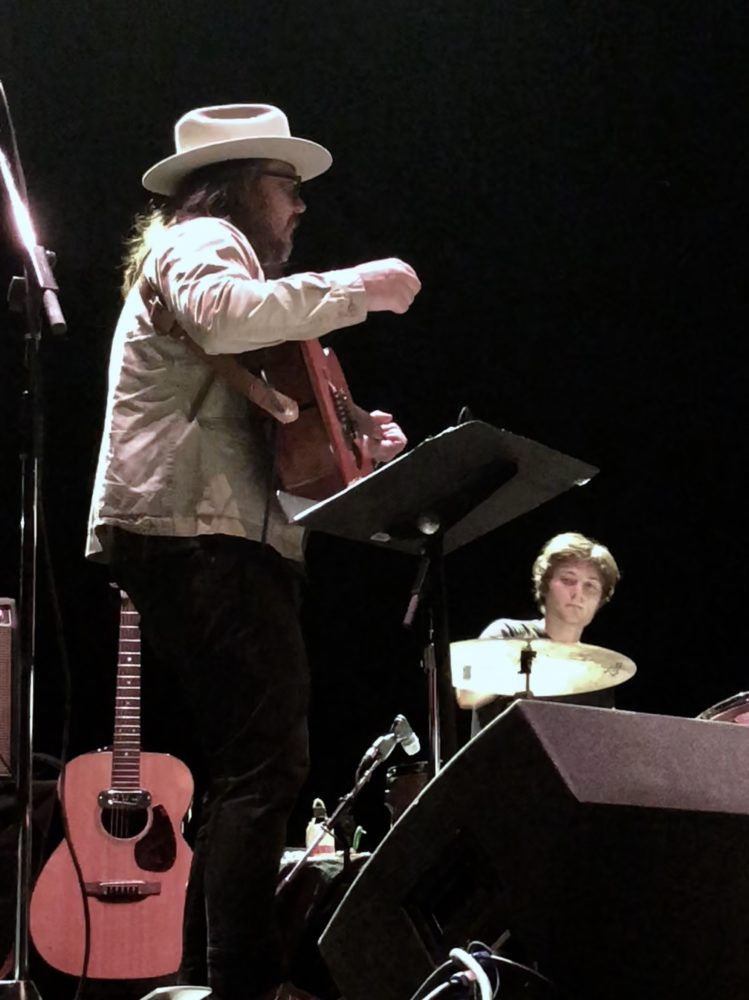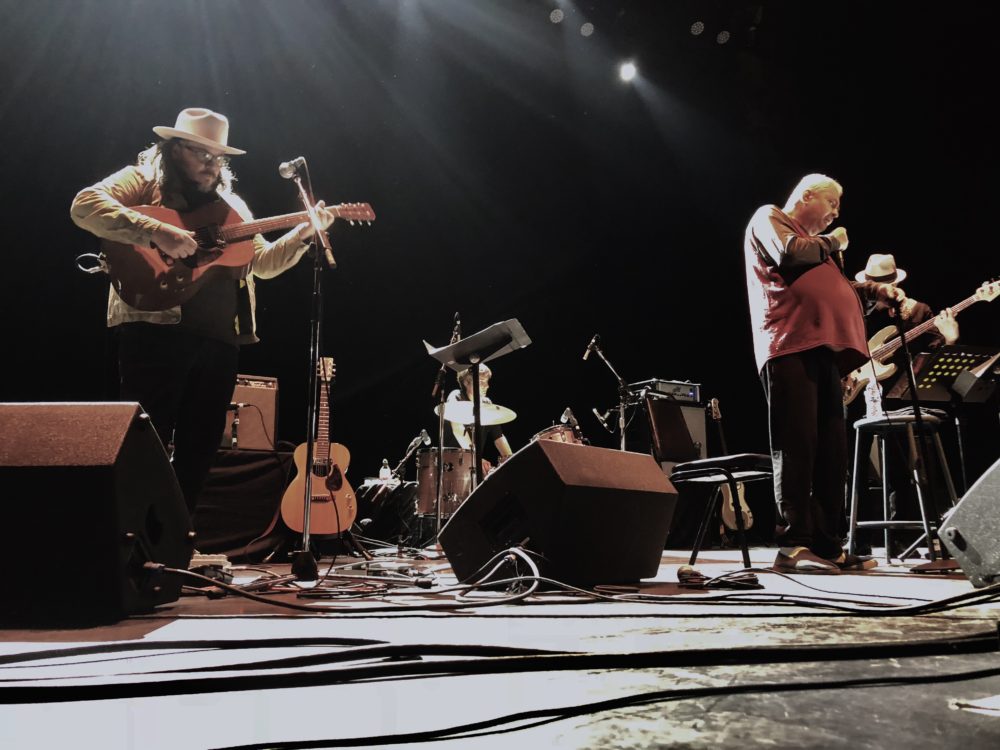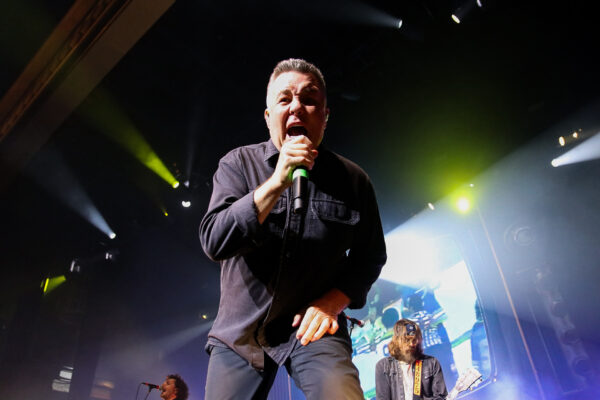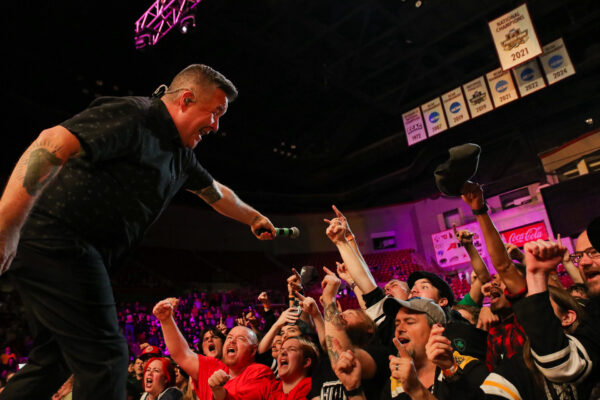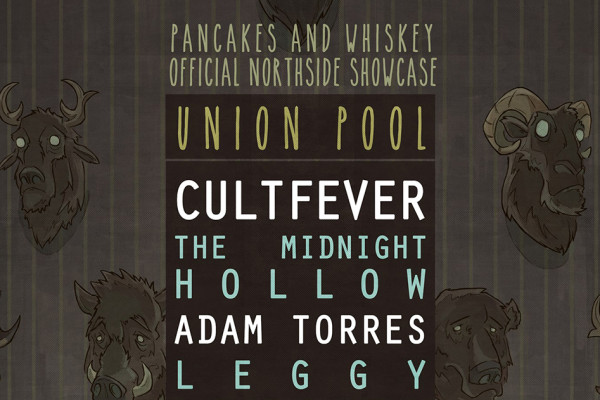It is said that seeing is believing. It is the main tenet of faith, and in the Christian faith that provides the groundwork for so much of Daniel Johnston’s lyrics and illness, he whosoever believeth in Jesus shall have everlasting life. It is through works and deeds that one survives all the calamities that life throws at mere mortals, and in that spirit Johnston embarked on a quote-unquote final tour.
For the uninitiated, Daniel Johnston is hard to describe, but easy to reduce to an illness that has consumed his life. His bipolar disorder was a major topic of the 2005 documentary, the Devil and Daniel Johnston, detailing the times he packed up and joined a carnival or took the keys out of his father’s plane mid-flight necessitating a crash landing the two of them survived. He is not well, but from him comes a wellspring of beauty. In the movie some would describe him as Van Gogh esque, a man who’d cut off his own ear.
Time has branded him with the scars of medication—weight gain and shakes—to the point that in each stop, Johnston is backed by a different band unable to fly solo. Here in Chicago, he was joined by Jeff tweedy of Wilco and the accompanying members of Tweedy, including his son Spencer. The band brought the usual combination of levity and heaviness making his formerly sparse compositions feel like a stable airplane. On songs like “Walking The Cow,” Tweedy turned a rhythmic organ song into a full bodied vehicle and Johnston sounded like a superstar.
Those that do know Johnston will take this as a big of hyperbole, but he really did sound great. With the exception of a false start on “Like a Monkey in a Zoo,” Johnston was present for each of his songs. Like the younger Johnston in the documentary, his powerful smirk exuded the confidence of a man who had an entire audience in the palm of his hand. He even cried for louder singing during “Funeral Home.”
Two Beatles tunes, naturally Lennon written, highlighted the themes of all his writing. The forlorn love highlighted by “You’ve Got to Hide Your Love Away” and calls to madness in “I’m So Tired” are streams that run through his music, especially when it comes to the unrequited love of his muse, Laurie.
And while the audience sat and watched and sang gleefully along with his tunes, the painful reminder of his illness managed to creep in. During the documentary, it was easy to laugh at his hijinx until he was bludgeoning his manager or terrorizing his family at Christmas when he gave his brother a broken rib. And for the Audience he gave us a “Christmas present” of not killing himself, which caused a hush to come over the room. Is this the fun Daniel Johnston making an uncomfortable joke, or the Daniel Johnston who had threatened to take his life many times, is there a difference?
No one seemed to know, not the audience, not the backing band. And then, right as tension reached an apex, he launched into “True Love Will Find You in the End” by himself. It was such a moment that the band forgot to play and watched with as much admiration as an agape audience so astounded by the conviction of a man falling apart but managing to keep it together long enough to sing a minute and a half song. Seeing a copy of the set list later, this was not the song he was supposed to sing. He just did it.
It was reverential to say the least, reminiscent of the way music can sometimes be like church. Singer songwriters especially, those like Leonard Cohen, can stand in the pulpit and deliver the good word. Daniel Johnston gave us all of his energy, trembling through every last word as if it would save our souls. And for the many who have listened to his songs and seen him live, they know that beauty is not confined to one programmatic package. That sometimes beauty comes with a crown of thorns. But in the end some truth is delivered, leaving his fans with but one thought: I believe in Daniel Johnston.
Article: Christopher Gilson



